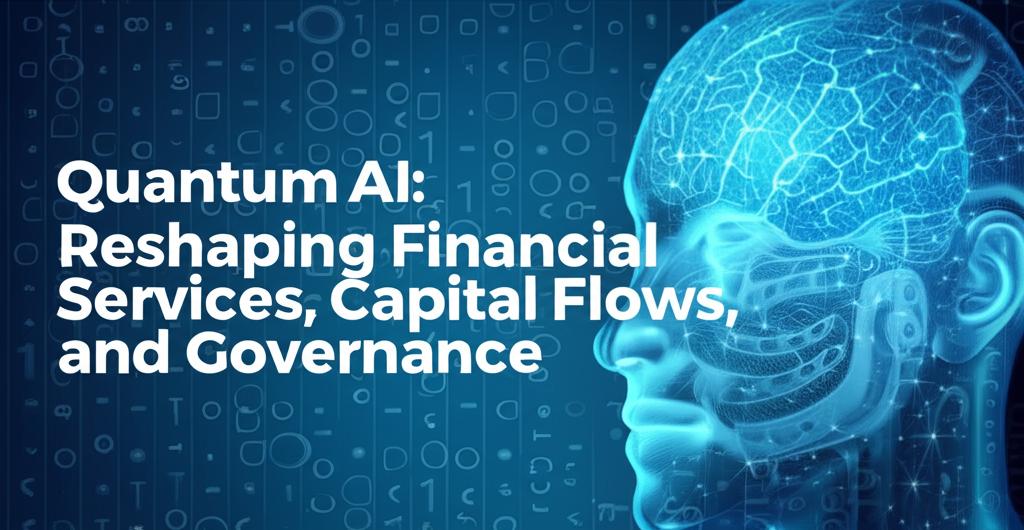The convergence of quantum computing and artificial intelligence, often termed Quantum AI, is rapidly emerging as a transformative force with the potential to significantly reshape financial services, alter capital flows, and redefine governance within the sector. This technological synergy promises to unlock unprecedented computational power, enabling financial institutions to tackle complex problems previously considered insurmountable.
Transforming Financial Services:Quantum AI is poised to revolutionize numerous aspects of financial services. Its enhanced data processing and modeling capabilities can lead to more accurate risk assessment, optimized investment portfolios, and highly personalized customer experiences. For instance, quantum algorithms can analyze vast datasets in real-time, improving the speed and accuracy of fraud detection and risk management beyond the capabilities of classical computing systems. This includes more precise stress testing through quantum-inspired Monte Carlo simulations.
Financial modeling and simulations stand to be significantly accelerated, allowing for more sophisticated pricing of complex derivatives and a deeper understanding of market dynamics. In customer engagement, Quantum AI can enable hyper-personalization of financial products and services by leveraging advanced predictive analytics to tailor offerings to individual client needs and risk profiles. This could lead to the creation of entirely new financial products, such as customized insurance policies based on real-time data. High-frequency trading could also be greatly enhanced by the parallel processing capabilities of quantum computing.
Impacting Capital Flows:The ability of Quantum AI to analyze markets with greater speed and accuracy has the potential to reshape capital flows. By uncovering hidden patterns and trends, Quantum AI can provide investors with a competitive edge, potentially leading to shifts in investment strategies and market behavior. Advanced AI, including Quantum AI, is increasingly likely to inform core financial decisions like credit and insurance underwriting, which could, in turn, influence the allocation of capital across the economy. Furthermore, as Quantum AI helps generate more profitable insights for investment managers, it could lead to increased market efficiency but also potentially to correlated trading behaviors that could impact market stability if not properly managed.
Redefining Governance:The advent of Quantum AI necessitates a new approach to governance in the financial sector. While offering immense opportunities, it also presents significant risks, particularly in cybersecurity. Quantum computers could potentially break most common encryption methods currently in use, making the development of quantum-resistant encryption and quantum key distribution (QKD) crucial for safeguarding financial transactions and sensitive data.
Balancing rapid innovation with responsible governance is a key challenge. Regulatory frameworks will need to adapt to address the unique aspects of Quantum AI, focusing on ethical considerations, data privacy, transparency, and accountability. Public-private partnerships and international cooperation on regulations are emerging as vital components in fostering safe AI adoption. For corporate boards, quantum readiness is becoming an imperative, demanding active stewardship in assessing risks, allocating resources, and preparing for quantum threats such as "harvest now, decrypt later" attacks.
Current State and Future Outlook:While Quantum AI is still in its early stages of adoption, with many financial institutions in the exploration phase, its potential is widely recognized. Governments and industry leaders are increasing investments in quantum research and development. For example, Singapore has committed significant funding since 2002 and launched a National Quantum Strategy in 2024 to integrate quantum AI into critical sectors.
Challenges to widespread adoption include the high cost of quantum hardware, a lack of trained personnel, and regulatory uncertainties. However, ongoing advancements in quantum hardware, error correction techniques, and hybrid AI models (combining classical and quantum approaches) signal a promising future. Businesses are increasingly investigating and investing in Quantum AI, recognizing its potential impact on data analytics, machine learning, cybersecurity, and risk management.
In the coming years, Quantum AI is expected to transition from experimental research to a transformative force in financial services. Financial institutions that proactively explore and prepare for this shift will be best positioned to leverage its power for enhanced efficiency, security, and market insights, ultimately leading the next wave of financial evolution. The United Nations has even declared 2025 as the International Year of Quantum Science and Technology, highlighting the growing global focus on this field.

